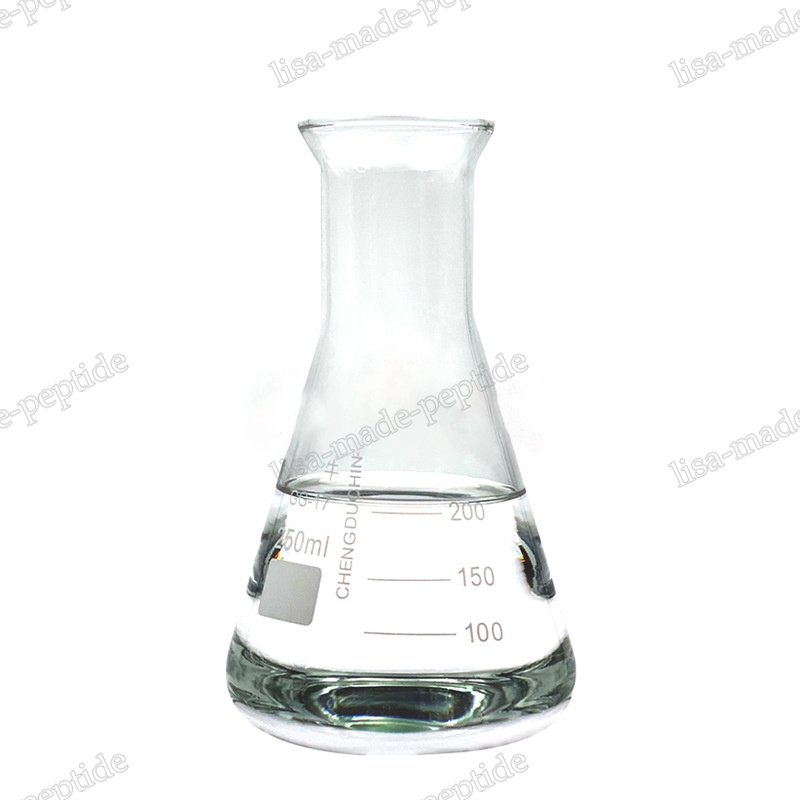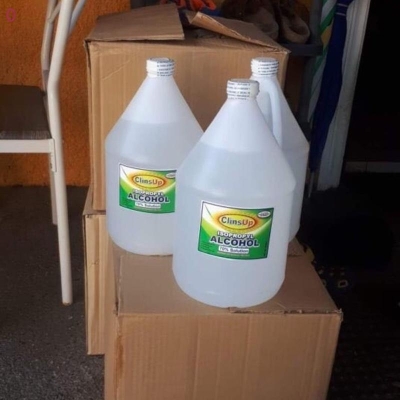-
Categories
-
Pharmaceutical Intermediates
-
Active Pharmaceutical Ingredients
-
Food Additives
- Industrial Coatings
- Agrochemicals
- Dyes and Pigments
- Surfactant
- Flavors and Fragrances
- Chemical Reagents
- Catalyst and Auxiliary
- Natural Products
- Inorganic Chemistry
-
Organic Chemistry
-
Biochemical Engineering
- Analytical Chemistry
-
Cosmetic Ingredient
- Water Treatment Chemical
-
Pharmaceutical Intermediates
Promotion
ECHEMI Mall
Wholesale
Weekly Price
Exhibition
News
-
Trade Service
[ Focus on Chemical Machinery and Equipment Network ] On November 7, the Central Committee of the Communist Party of China and the State Council issued the "Opinions on Deepening the Battle of Pollution Prevention and Control", which clarified the key tasks of promoting green and low-carbon development from seven aspects
.
Among them, it is required to accelerate the formation of a green and low-carbon life>
.
Chemical machinery and equipment network hotspots pay attention to chemical machinery and equipment.
Among them, it is required to accelerate the formation of a green and low-carbon life>
.
China is a big country in the production, production and consumption of plastic raw materials
.
It is reported that in 2020, China's plastic output will be more than 100 million tons, and the output of plastic products above designated size will exceed 76 million tons
.
As an important basic material, plastic has been applied to all aspects of life and can be described as "ubiquitous"
.
Plastic itself is not a pollutant.
At present, the increasingly serious environmental problems such as "high carbon emissions" and "white pollution" are essentially non-degradable plastic waste leaking into the natural environment such as soil and water, causing visual pollution and soil pollution.
Damage, microplastics and other hazards
.
Plastic raw materials plastic products.
It is reported that in 2020, China's plastic output will be more than 100 million tons, and the output of plastic products above designated size will exceed 76 million tons
.
As an important basic material, plastic has been applied to all aspects of life and can be described as "ubiquitous"
.
Plastic itself is not a pollutant.
At present, the increasingly serious environmental problems such as "high carbon emissions" and "white pollution" are essentially non-degradable plastic waste leaking into the natural environment such as soil and water, causing visual pollution and soil pollution.
Damage, microplastics and other hazards
.
From the promulgation of national standards to the active follow-up and formulation of localized policies in various regions, the effective, orderly and effective control of plastic pollution has become the current development focus
.
.
According to statistics, many provinces such as Guangdong and Jiangsu have continuously updated the local new version of the "plastic restriction order" in recent years, and cities such as Guangzhou have also issued more stringent "plastic ban orders
.
" On November 2, the Chongqing Municipal Development and Reform Commission issued a notice on "Chongqing Municipality’s Implementation Opinions on Accelerating the Promotion of Green Transformation of Express Packaging"
.
Chongqing will promote the reduction of the source of express packaging materials, and basically realize the green transformation by 2025, no longer secondary packaging, and the scale of recyclable express packaging applications will reach 100,000
.
.
" On November 2, the Chongqing Municipal Development and Reform Commission issued a notice on "Chongqing Municipality’s Implementation Opinions on Accelerating the Promotion of Green Transformation of Express Packaging"
.
Chongqing will promote the reduction of the source of express packaging materials, and basically realize the green transformation by 2025, no longer secondary packaging, and the scale of recyclable express packaging applications will reach 100,000
.
At present, China has established a systematic governance system that reduces the use of production and consumption, maximizes the regeneration cycle in the recycling process, and fully quantifies and safely disposes in the end disposal process
.
.
An important part of the entire chain of plastic pollution control is to strengthen the recycling of waste plastics and turn "garbage" into renewable resources
.
In fact, many products from automobiles to home appliances, 3C electronics, packaging and consumer goods can be recycled
.
In the field of consumer goods, the recycling of ordinary beverage bottles accounts for the largest proportion, reaching more than 24%, about 3.
8 million tons
.
According to industry association statistics, China currently recycles nearly 19 million tons of various types of plastics each year.
While providing high-quality industrial raw materials, it can reduce sewage discharge by about 45% and energy consumption by 60%-70% compared with the use of primary resources.
.
.
In fact, many products from automobiles to home appliances, 3C electronics, packaging and consumer goods can be recycled
.
In the field of consumer goods, the recycling of ordinary beverage bottles accounts for the largest proportion, reaching more than 24%, about 3.
8 million tons
.
According to industry association statistics, China currently recycles nearly 19 million tons of various types of plastics each year.
While providing high-quality industrial raw materials, it can reduce sewage discharge by about 45% and energy consumption by 60%-70% compared with the use of primary resources.
.
As important as "reduction" is "substitution", and the search for plastic substitutes is becoming an increasingly feasible option
.
Biodegradable plastics, as one of the plastic alternative materials, usher in new opportunities
.
.
Biodegradable plastics, as one of the plastic alternative materials, usher in new opportunities
.
In addition to polylactic acid (PLA), which is commonly used in tableware, injection molding, and fiber, the types of biodegradable plastics that have been industrialized include polybutylene terephthalate (PBAT) and polyhydroxyalkanoate (PHA) , polypropylene carbonate (PPC) and the like
.
With the continuous deepening of China's plastic pollution control policy, the biodegradable plastic industry is ushering in a rapid development visible to the naked eye
.
.
With the continuous deepening of China's plastic pollution control policy, the biodegradable plastic industry is ushering in a rapid development visible to the naked eye
.
— Recently, Kanghui New Material Technology Co.
, Ltd.
, a subsidiary of Hengli Petrochemical, announced that its development project with an annual output of 30,000 tons of PBT/PBAT modified products was successfully started and produced qualified products
.
This is the fourth polymer manufacturer with PBAT degradation modified materials after Lanshan Tunhe, Fafa Technology, and Jinhui Zhaolong
.
, Ltd.
, a subsidiary of Hengli Petrochemical, announced that its development project with an annual output of 30,000 tons of PBT/PBAT modified products was successfully started and produced qualified products
.
This is the fourth polymer manufacturer with PBAT degradation modified materials after Lanshan Tunhe, Fafa Technology, and Jinhui Zhaolong
.
— On November 4, Chen Zhiming, general manager of Zhejiang Hisun Biomaterials Co.
, Ltd.
, stated in Nanjing that the PLA production capacity is expected to be expanded to 215,000 tons in 2023
.
Zhejiang Hisun currently has an annual production capacity of 40,000 tons of PLA, and announced in March this year that it will invest 1.
3 billion yuan in a new 150,000-ton PLA project
.
, Ltd.
, stated in Nanjing that the PLA production capacity is expected to be expanded to 215,000 tons in 2023
.
Zhejiang Hisun currently has an annual production capacity of 40,000 tons of PLA, and announced in March this year that it will invest 1.
3 billion yuan in a new 150,000-ton PLA project
.
— On November 3, Beijing Lanjing Microbial Science and Technology Co.
, Ltd.
announced the full publicity of its annual production of 25,000 tons of biodegradable new material polyhydroxy fatty acid ester (PHA) industrialization project before approval
.
The project is expected to start construction in 2021, with a construction period of about one year, and the first-phase production line will be completed and put into operation in 2022, with a total land area of approximately 129.
9 mu
.
, Ltd.
announced the full publicity of its annual production of 25,000 tons of biodegradable new material polyhydroxy fatty acid ester (PHA) industrialization project before approval
.
The project is expected to start construction in 2021, with a construction period of about one year, and the first-phase production line will be completed and put into operation in 2022, with a total land area of approximately 129.
9 mu
.
Under the "dual carbon" goal, the green energy-saving transformation of enterprises has become the trend of the industry
.
At present, in the plastics industry, actively promoting recyclable, easily recyclable, degradable alternative products and increasing green supply are important means to effectively control plastic pollution
.
At the same time, we must standardize the recycling of plastic waste, and strive to form a more complete circular economy system
.
.
At present, in the plastics industry, actively promoting recyclable, easily recyclable, degradable alternative products and increasing green supply are important means to effectively control plastic pollution
.
At the same time, we must standardize the recycling of plastic waste, and strive to form a more complete circular economy system
.
Note: This article is compiled and released by the Plastic Machinery Network ( and the data comes from: Economic Daily, People's Daily, China Development Network, and Institute of Biodegradable Materials
Original title: Full chain prevention and control: a strong and orderly fight against plastic pollution







